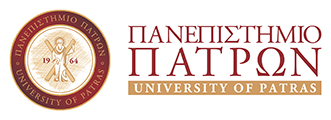Το παρόν άρθρο αποτελείται από δύο μέρη. Στο πρώτο μέρος επιχειρείται η παρουσίαση και ανάλυση ορισμένων πτυχών της ιστορικής διαδρομής των τελευταίων 40 χρόνων του ελληνικού πανεπιστημίου, έχοντας στο επίκεντρο τον Νόμο Πλαίσιο του 1982. Κατ’ αρχήν επιχειρείται να απαντηθεί το ερώτημα γιατί ο Νόμος Πλαίσιο του 1982 ήταν όντως μεταρρύθμιση και για το σκοπό αυτό αναλύονται τα βασικά μεταρρυθμιστικά στοιχεία που περιείχε, με έμφαση στη θεσμοθέτηση της φοιτητικής συμμετοχής στη διοίκησης. Ακολούθως, παρακολουθείται η διαδρομή μέχρι το 2011 με την παράθεση των νομοθετικών εκείνων πρωτοβουλιών που ήρθαν να συμπληρώσουν ή να διορθώσουν τη μεταρρύθμιση του 1982. Και τέλος, παρουσιάζονται τα ουσιώδη στοιχεία της αντιμεταρρύθμισης του 2011. Στο δεύτερο μέρος του άρθρου επιχειρείται η σύνδεση της μεταρρύθμισης του 1982 με τις κοινωνικές δυναμικές της εποχής όπως αυτές είχαν διαμορφωθεί κατά την περίοδο 1974-1981 και, πιο συγκεκριμένα, επιχειρείται να απαντηθεί κατά πόσο η μεταρρύθμιση του 1982 απάντησε στις προσμονές και στα αιτήματα της κοινωνίας της εποχής. Το δεύτερο μέρος του άρθρου καταλήγει με μία συζήτηση περί της αντιμεταρρύθμισης του 2011 και ειδικότερα περί των τρόπων με τους οποίους εξασφαλίστηκε εντέλει η κοινωνική αποδοχή των αντιμεταρρυθμιστικών της στοιχείων.
(EL)
The present article comprises two parts. In the first part, the basic reform of the Greek higher education in the last 40 years is outlined and analysed on the basis of the Higher Education Frame Law of 1982. The article aims to answer the question whether this Frame Law was a real reform. For that purpose, the main elements of the Frame Law are analysed, with specific focus on the participation of students in higher education governance. The period between 1982 and 2011 is examined next, with regards to the changes in higher education legislation that improved the Frame Law of 1982 or adapted it to the European environment. Finally, the elements of the 2011 Law that actually extinguished student participation in governance are examined. The second part of the article deals with the relationship between the 1982 reform and the dynamics existing in the Greek society. More specifically, the second part of the article aims to answer whether the 1982 reform was a response to the expectations and the demands of the Greek society. Finally, the article concludes with a discussion on the reasons why the elimination of student participation in governance was approved by the Greek society.
(EN)
The present article comprises two parts. In the first part, the basic reform of the Greek higher education in the last 40 years is outlined and analysed on the basis of the Higher Education Frame Law of 1982. The article aims to answer the question whether this Frame Law was a real reform. For that purpose, the main elements of the Frame Law are analysed, with specific focus on the participation of students in higher education governance. The period between 1982 and 2011 is examined next, with regards to the changes in higher education legislation that improved the Frame Law of 1982 or adapted it to the European environment. Finally, the elements of the 2011 Law that actually extinguished student participation in governance are examined. The second part of the article deals with the relationship between the 1982 reform and the dynamics existing in the Greek society. More specifically, the second part of the article aims to answer whether the 1982 reform was a response to the expectations and the demands of the Greek society. Finally, the article concludes with a discussion on the reasons why the elimination of student participation in governance was approved by the Greek society.
(FR)

